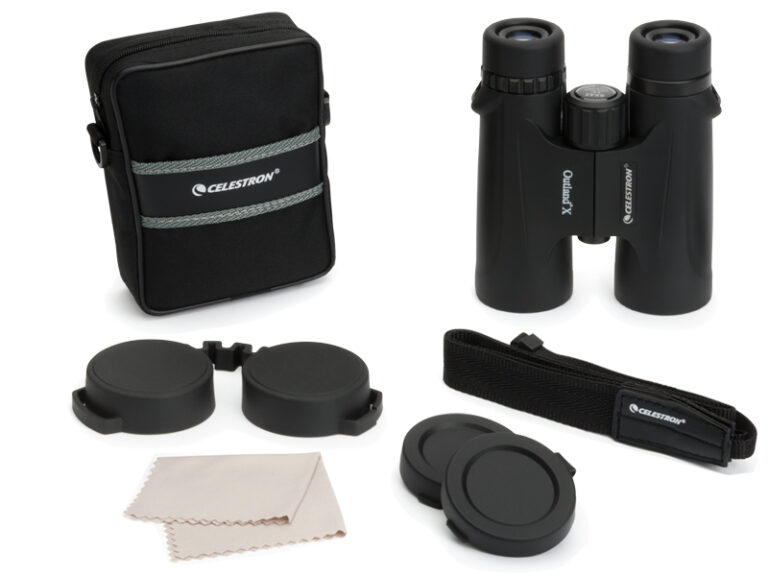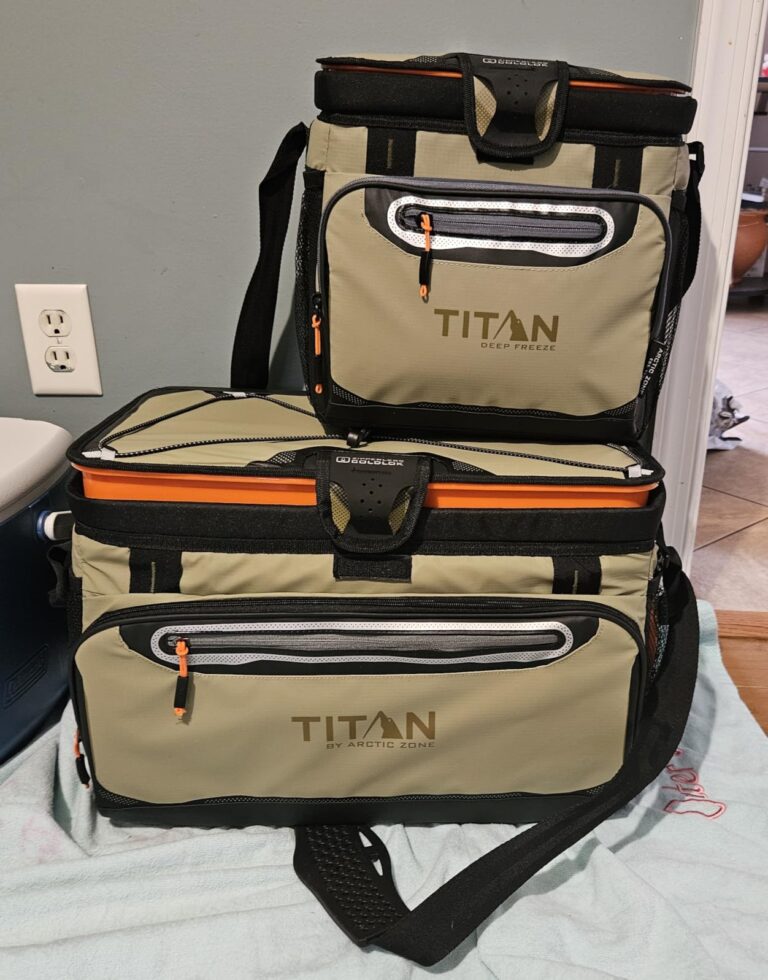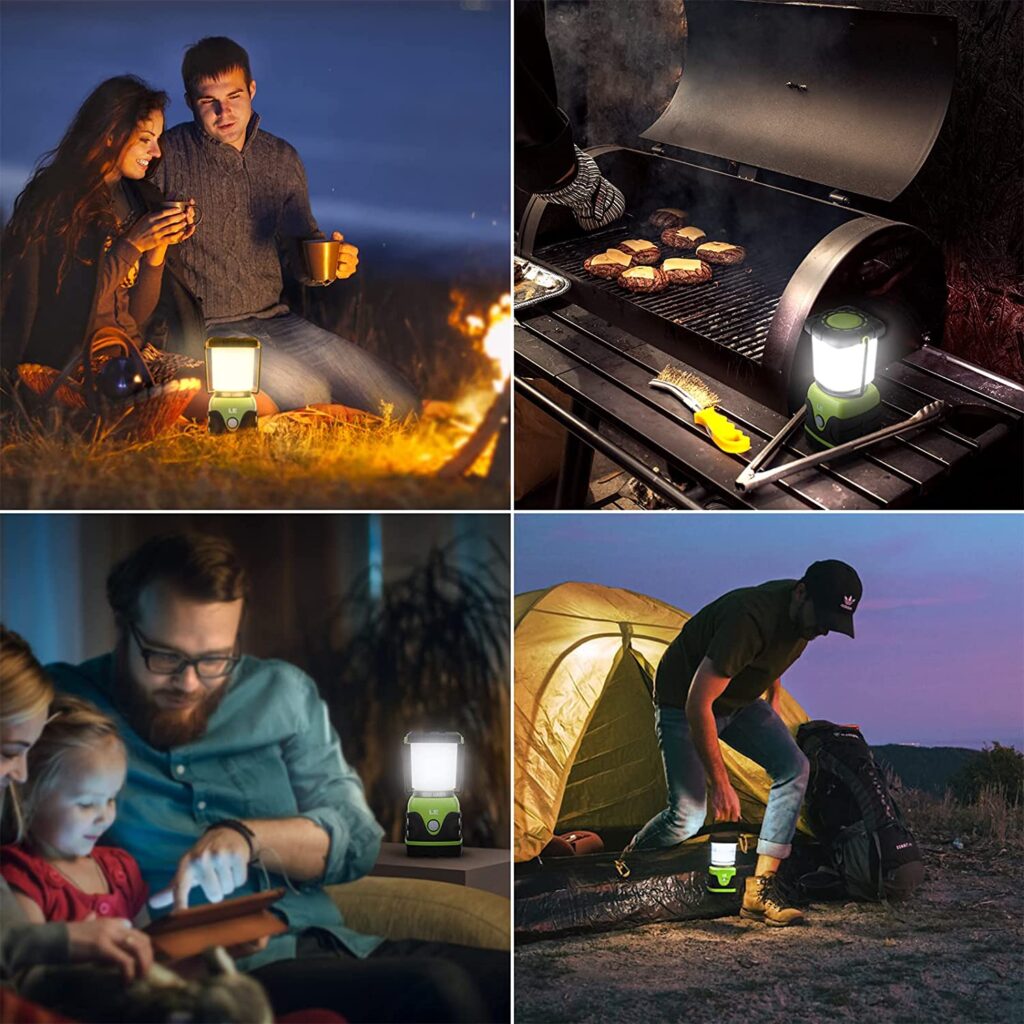You need the proper lighting to enjoy the night after the sun has set and it is entirely dark. You need sufficient illumination for safety, comfort, and enjoyment while camping, fishing, hiking, or walking the dog. This buying guide clarifies how to choose the optimum lighting so that you are informed and aware of the situation. In this article, we explain How to Choose a Camp Lantern!

Types of Camping Lanterns
Electric, fuel-burning, and candle lanterns are the three basic lanterns. Each variety has its function and benefits, so understanding the differences can help you limit the plethora of possibilities accessible.
- Electric Lanterns
Almost all electric lanterns run on batteries and use LED, which stands for light-emitting diode.
These lanterns were made to be better than the original gas-powered lantern. They have a brighter light, last longer, make less noise, and give off less exhaust than the gas-powered lantern they replaced. Electric lanterns are safer to use near children and animals since they produce no heat.
- Fuel-Burning Lanterns
The most traditional camping light is a fuel-burning lantern, and many seasoned campers still swear by them today. They can be powered by liquid fuel, propane, and butane, among other things.
The best thing about lanterns that use fuel is that they light a lot. When you require to light up a campsite, a gas-powered lantern is the only way. They’re also better for camping in cold weather or in a car, where weight and size don’t matter.
Fuel-burning lanterns have many problems that have led many campers to choose more modern electric lanterns instead. Aside from being big and heavy, these lanterns give off toxic fumes that make them very dangerous to use in tents or other small places without enough ventilation. Since fuel-burning lanterns also give off a lot of heat, we shouldn’t use them near children or things that can catch fire.
- Candle Lanterns
Even though many people think candle lanterns are old-fashioned, they still have benefits that other lanterns don’t have. Candle lanterns get their light from a candle placed inside the lantern.
These lanterns give off a soft, quiet light that is perfect for close-up work or giving your campsite a nice atmosphere. Still, they don’t give off much light, and they have the same risks as fuel-burning lanterns in that they produce a lot of heat that could be dangerous.
Electric vs. Gas-Powered Lanterns
What qualities you like will ultimately determine whether you choose an electric light or a gas lantern. Electric lanterns are safe to use inside a tent because they are quiet, light, and not dangerous.
But when the temperature drops below freezing, alkaline batteries lose about half of their power, and rechargeable batteries may only last for a day if they are charged.
Gas-powered lanterns are brilliant, have a long burn duration, and perform well in sub-freezing conditions. The runtime decreases somewhat when using alkaline batteries, but only a little. Because they use a real flame, they are hot to the touch, can’t be used near things that can catch fire, and need to be in an open area. Also, they are not as strong as electric lanterns.
How to Choose a Camping Lantern
Durability
The most crucial element to consider when shopping for a camping lantern is its durability—the more robust, the better. The longevity of camping lamps varies greatly. Some last a week and quickly shatter, while others provide years of illumination.
It is difficult to determine if a lantern is a good quality and long-lasting. You could spend a lot of money on many features of an item, but that specific lamp might not last very long. As a result, it is critical to determine which goods will survive for years and which will not.
Weight and Packed Size
Think about how you will use the lantern. For camping in a car, weight and size won’t be a problem. But if you want to bring your lantern into the woods, you’ll need something lighter that doesn’t take up a lot of space. Look for a small or foldable lantern if you’re going backpacking.
Many lanterns for backpacking are also light, so it should be easy to find one that weighs less than half a pound. Quite a few of the things on this list fit into those groups.
Brightness
A camping lantern’s primary purpose is to give off enough light, and different lanterns have different brightness levels. The amount of light a lantern gives off is measured in lumens. More lumens means a brighter, stronger light.
But a higher maximum light output usually means less efficiency and shorter battery life or time burning. Most campers don’t need more than 100 to 200 lumens, but bigger groups might need up to 400 lumens.
While fuel-powered lighters flash the brightest, many electric lanterns function just as well without catching fire or releasing dangerous gases.
Battery Life
If you choose an electric lantern, consider battery longevity, particularly if you plan to remain in the woods for many days or longer. On high, many lanterns will last 5–10 hours, but on low, they will last longer.
If your lantern utilizes disposable batteries, bring additional batteries with you on your vacation. If your lantern has a battery that you can charge, bring a portable battery or solar charger to keep it charged between uses.
Simple to Use
Most of the time, electric lanterns are the easiest to use. They can be turned on by pressing a button, and the brightness is easily changed. Putting the fuel canister in the lantern and lighting the wick takes a little more work.
Price
When selecting a camping light, price is an important consideration. We generally consider the price first, then the lantern, but the camping light must be reasonable while performing its functions. Most people will only use their camping lights a few times during summer. Therefore, spending a lot of money on goods, we will not use often is unnecessary.
We have more useful things to do with our money. Fortunately, thanks to competition and internet retailers, camping lights are now more affordable than ever and provide even more functionality.
Final Words
Finally, you should weigh all the benefits and drawbacks of each kind of lantern to choose which is ideal for you/ How to Choose a Camping Lantern? Fortunately, there are several types to pick from, and one will undoubtedly suit your requirements.















